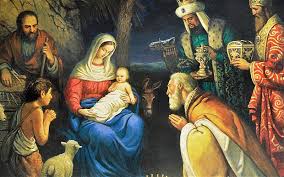“My sheep listen to my voice; I know them, and they follow me.” (John 10:27)
The mindset of sin, which is living a life separate from God, will naturally result in a life of sinning — doing the opposite of God’s will. Actions that we call sin are only the result of a sinful condition, the effect of not having a true relationship with Christ.
If we get this backwards, we’ll think that doing wrong things is what separates us from God. The opposite is true: living apart from God is what leads us to do bad things. Sin (singular) leads to sins (plural).
King Solomon began his reign with his heart trusting God, in a unified, trustful relationship, that in time faltered. “For it came to pass, when Solomon was old, that his wives turned away his heart after other gods; and his heart was not perfect with the Lord his God, as was the heart of David, his father.” (1 Kings 11:4). Solomon’s sin began by replacing his relationship with Yahweh, by the outward worship of other gods, to satisfy the multicultural customs of his many foreign wives.
Did Eve fall because she ate the apple? No. She ate the apple after she fell — after tempted to distrust God — to rely instead on her secret perceptions of reality (preferring to know both good and evil), apart from spiritual unity and trusted guidance. Reaching for the fruit was only the result of a disconnect with her God. This resulted in spiritual death, disunity from God.
It took some time for Solomon to begin living apart from God in rampant sinning, whereas for Eve, this occurred with one flirtatious temptation. Minds unified with Christ’s mind is the conditional reality of a mature outward life, flowing from an inner spiritual life of unity.
Though we are seeking to know Christ, we may not yet know Him as intimately as we are privileged to know Him. Thus there may be times when we turn our eyes from Him. Dependent on ourselves without His Spirit leading, we will fail.
Here is a lesson: When a married man and woman separate, they no longer know each other straight from the heart, of the mind, intimately in conjoined reality. The New Testament uses the metaphor of marriage, to define our relationship with Christ as His bride.
If we continue to seek to know Him, to trust in our relationship with Him leading, our hearts and behaviour will be right as we grow into trusted union with Him. “And this is eternal life, that they know you, the only true God, and Jesus Christ whom you have sent.” (John 17:3 ESV) We will know Christ increasingly, insofar as we follow His Spirit’s lead and trustingly obey.


